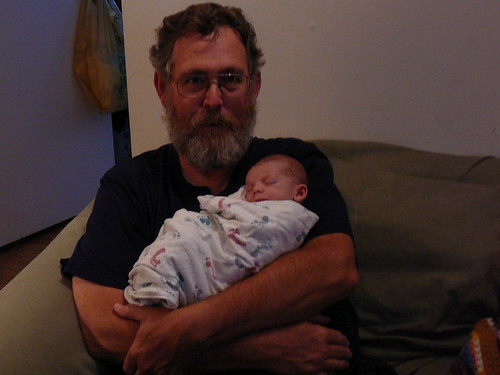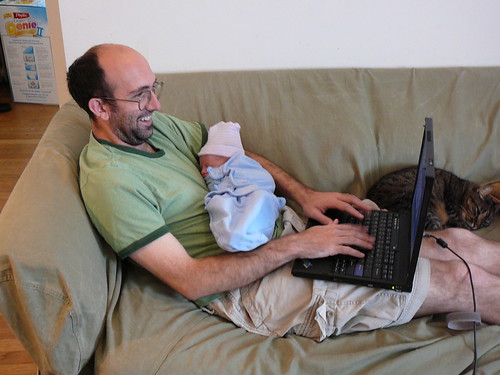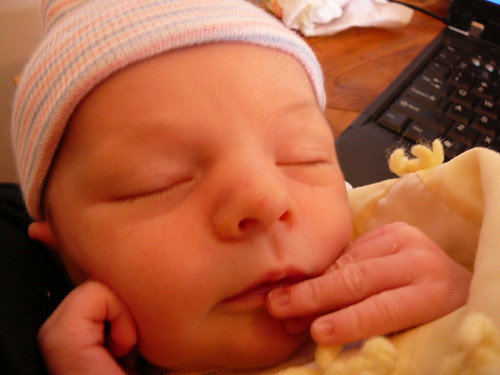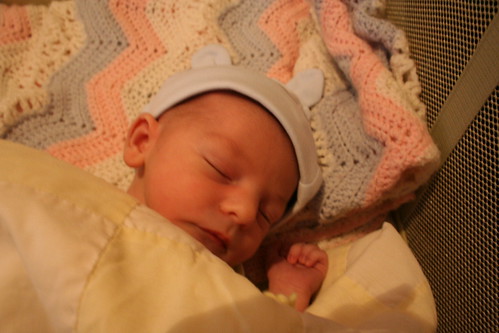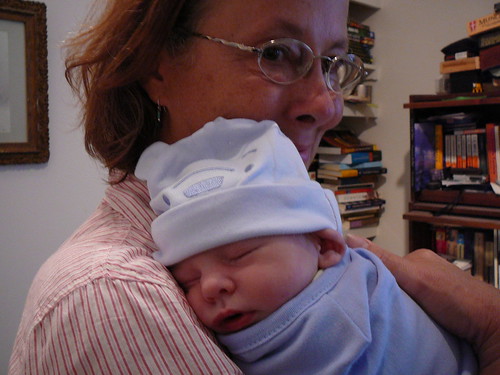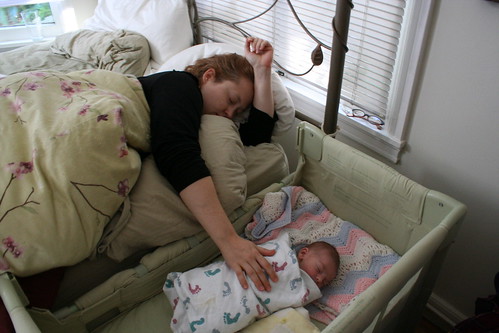The first and most primal task for a mother is feeding her baby. There are a ton of benefits associated with breastfeeding over bottle feeding—although it often seems that people assert causation where we may only be seeing correlation. That is, while it may be true that breastfed babies tend to score higher on IQ tests, is this because breastfeeding makes you smart? Or is it because children of upper class, well-educated mothers are more likely to be breastfed, while lower-class children are more likely to receive formula, and the former group scores higher on IQ tests regardless of early feeding methods? I’m skeptical of the more extreme pro-breastfeeding propaganda, but I am convinced that, in general, the best food for a human baby is human milk.
The problem is that breastfeeding can be really hard. I had a terrible time getting Robin to latch on in the first two days of his life. In fact, it seems like most women have some difficulty with breastfeeding at first. It really does make you wonder how the human race survived the Stone Age. Fortunately, now we have breastfeeding classes, lactation consultants, and a dizzying array of technology to throw at the problem.
Robin would suck for a bit, then toss his head in frustration, spit out the nipple, and bawl. The emotional charge was pretty enormous. My baby was rejecting me. The nurses were all watching and judging. They had forms where they took notes about me and my breastfeeding, and these forms included a scale, on which I was told I ranked “average to below average.” Specifically at breastfeeding, but I very much felt like a below average mother.
Robin lost weight quickly those first few days—all babies lose weight at first, but the magic figure is ten percent: once they lose more than that, the pediatrician starts keeping a very close eye on things. Robin lost ten point nine percent of his birth weight by day three.
The nicest of our nurses set me up with a lactation consultant. I call Dina the nicest of our nurses because, although many of them were very very nice, she gave me the best compliment: “I always like coming in here,” she told me, “because you have a very good energy, an energy of togetherness.”
The lactation consultant was named Yvonne. She was splendid. She told me the problem would most likely resolve itself once my milk came in: in the early days a mother produces a yellow liquid called colostrum, which is very good for the newborn but is much thicker than the later milk, and therefore harder for the infant to extract by sucking. Robin just didn’t have the patience, and the hungrier he got, the sooner he degenerated into angry screaming. He was clearly starting to associate the whole experience of nursing with frustration and unhappiness. So Yvonne suggested I use a breast pump to get the colostrum out, and supplement with formula until my milk supply was established. We snagged a soup spoon out of the hospital pantry to feed him with: babies that small only swallow a teaspoon or so at each feeding, and using a bottle can screw up breastfeeding even more as the infant gets used to the artificial nipple instead of the real one. (Dina later gave us a little cup to use instead.)
So Day Three was pretty wild, what with me hooking myself up to the milking machine every few hours to extract the precious, precious drops of golden colostrum. The hospital-grade electric breastpump had two big suckers that attached to my boobs, and while it was going I could watch my nipples pistoning back and forth inside the plastic tubing. It was artificial and alienating and also painful, and I didn’t feel any better about my failure to nurse my son, but at least I knew he was getting something to eat.
The next morning Yvonne was back with a little gizmo she told me was called a “nipple shield.” Nina commented that it sounds like something Wonder Woman would wear: “a gift from the Amazon queen!” It’s actually just a thin bit of nipple-shaped silicone that you can slap on over your boob. It’s a little longer than a real nipple, so easier for a baby to latch on to, and it has holes in the end of it so that the kid can suck milk through the shield, from your breast. “I think this might solve your problem,” she said, and she was entirely correct. The magic nipple shield worked like a charm; Robin latched right on and suckled happily. It was incredibly, incredibly rewarding to finally be able to hold and feed him normally, to feel him curled up close to my body and to know that now, for him, I’d be a locus of pleasure and contentment rather than hunger and frustration.
The day after we came home my milk came in, and just as Yvonne predicted, Robin’s now able to nurse without the shield. I still use it sometimes when we’re having trouble getting a good latch, usually because he’s slept too long between feedings and he wakes up hungry and impatient. But most of the time it’s just him and me, unaugmented. He’s gaining weight again now and the pediatrician is happy.
My days and nights now revolve around feedings. Every one and a half to three hours, day or night, I know I’m going to be obliged to sit down with Robin for about an hour, sometimes more and sometimes less, depending on how long it’s been since the last feeding and how long it takes him to latch on. As I’m writing this I’m calculating in my head how long I have until he wakes up hungry. (Probably not very long.) But the nursing itself is sweet and lovely and I’m terribly grateful that it’s working out for us.
